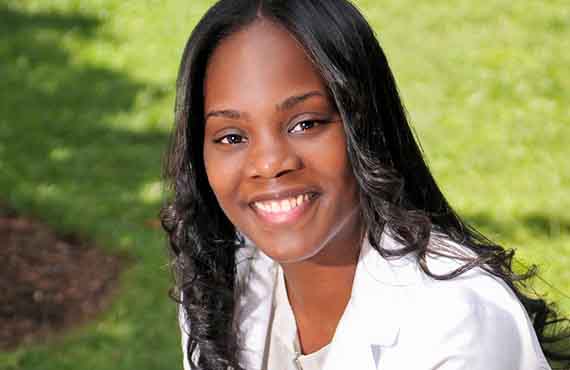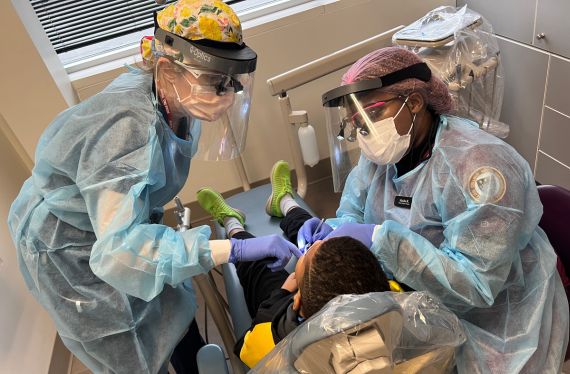Masks have been a constant tool in the fight to stop the spread of COVID-19, especially in indoor settings. But as cases continue to surge across the country due to the Omicron variant, public health officials have started to take a harder look at just which mask is best.
On January 14, the Centers for Disease Control noted that “while all masks and respirators provide some level of protection, properly fitted respirators (N95, KN95) provide the highest level of protection.” The organization stopped short of recommending a specific type of mask, while reinforcing that any mask is better than no mask.
At Regis College, an indoor mask requirement is in place for all people on campus, regardless of vaccination status. Individuals can remove their mask when alone in their office or residence hall room, or while eating or drinking.
The university does not plan at this time to require specific types of masks for community members, but Regis College President Antoinette Hays, PhD, RN, noted that could change if the CDC makes a recommendation that there is an absolute need to move away from cloth masks.
The most important point, she said during a university town hall on January 14, is everyone on campus wear a mask and wear it correctly, snugly fitting over the nose, mouth, and chin.
“We often times are seeing people wearing masks hanging below their nose and that is just not effective,” Hays said. “What we care about is that you mask, that you mask carefully when inside, and that you wear your mask correctly.”
Mary Lou Cullen, an assistant professor and director of the clinical resource and simulation center in the Young School of Nursing, echoed Hays’ call for correct mask wearing.
“The more the virus travels to another host, the better opportunity it has to mutate. And masks help prevent that,” Cullen added.
Types of Masks1
Cloth Masks
- Proper fit over your nose, mouth, and chin to prevent leaks.
- Multiple layers of tightly woven, breathable fabric.
- Nose wire.
- Fabric that blocks light when held up to bright light source.
Surgical Masks
Widely available
- A proper fit over your nose, mouth and chin to prevent leaks.
- Multiple layers of non-woven material.
- Nose wire.
KN95 Respirator
- Designed to standards that do not often have a quality requirement.
- Seal tightly to face when fitted properly.
- About 60% of KN95 respirators evaluated during the pandemic did not meet the requirements they intended to meet.
N95 Respirator
- When worn consistently and properly, provide highest level of protection from particles.
- Seal tightly to face when fitted properly.
- Filter at least 95% of particles in the air when you have a proper fit.
- Information provided by the CDC


